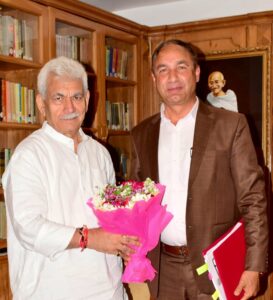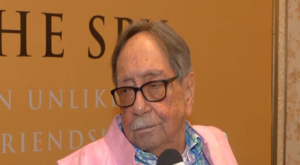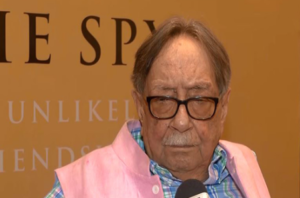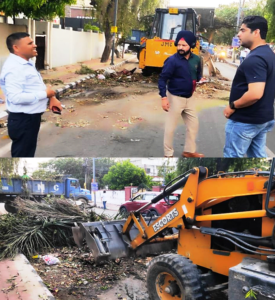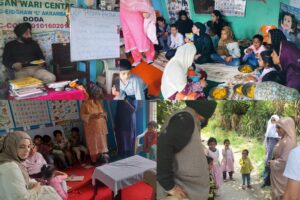DSRS JU Organizes Seminar to commemorate “the 1994 Parliament Resolution on J&K”
JAMMU, February 22- The Department of Strategic and Regional Studies (DSRS), University of Jammu, in collaboration with the Jammu Kashmir Study Centre (JKSC) organized 1-Day Seminar to commemorate “the Parliament Resolution on Jammu and Kashmir” in the Seminar Hall of the Department of Strategic and Regional
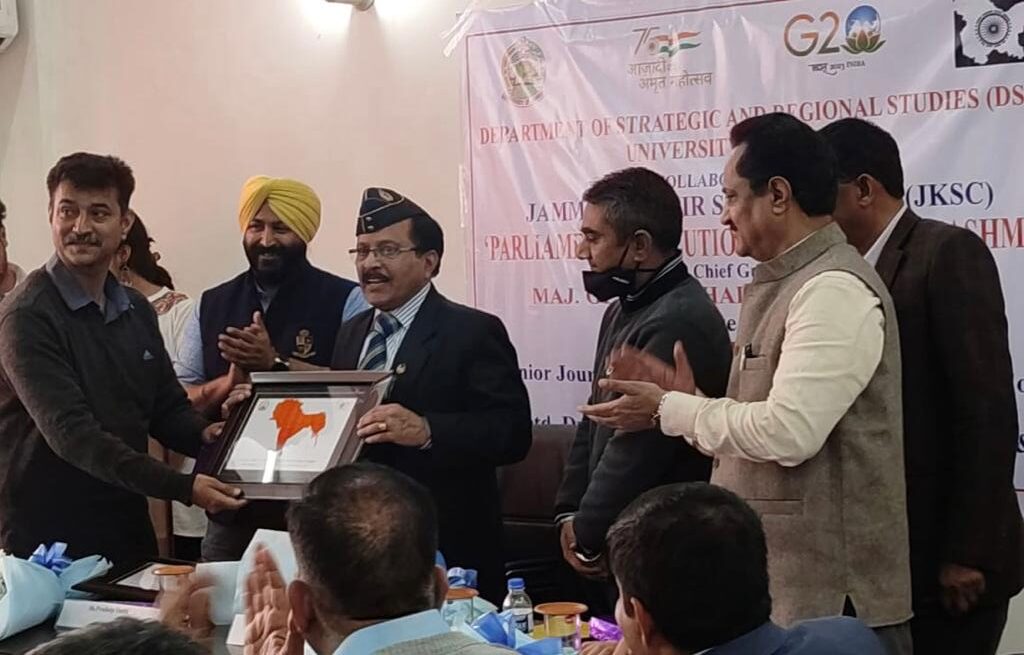
Major General (retd.) S.K. Sharma, the Chief Guest at the occasion suggested three-pronged diplomatic and military options to regain POJK that includes “India’s military attack on POJK and regain its lost territory”, by developing UT of J&K to a such level so that the people of POJK revolt against Pakistan and reunite with the UT of J&K”, and “assist POJK to become be an independent state that can help India’s standing in the UN and other international forums”.
In his presentation, titled “Displaced People: Real Stakeholders of POJK”, Dr. Deepak Kapoor argued that “Pakistan illegally occupied POJK by deploying Pashtun raiders and launching an invasion of J&K under Operation Gulmarg in 1947, killing and displacing of thousands of Hindus and Sikhs in Baltistan, Gilgit, Kotli, Mirpur, Muzaffarabad, Poonch, Rajouri and Baramulla.
Later, particularly after the Sino-Indian war of 1962 and the Indo-Pakistani war of 1965 brought dramatic changes in the bilateral power balance and territorial changes in J&K. The Indo-Pakistani war of 1971 and the subsequent conclusion of the Simla Agreement had given India the upper hand for time being, but Pakistan in its parliament undermined and categorically rejected the sanctity of the Simla agreement in the early 1990s”.
Dr. Deepak Kapoor, Deputy Director Health Services J&K and the Convenor of Pakistan Occupied Jammu and Kashmir Visthapith Seva Samiti (POJKVSS) maintained that India responded in kind and passed a resolution on J&K in the Parliament in 1994. In reaction, Islamabad approached the United Nations and there the Indian delegation did not receive the expected support from the international community.
In fact, the United States began to side with Pakistan on the issue of J&K.” “Now under the BJP government, particularly after the bifurcation of the J&K state into two union territories in August 2019, Pakistan is on back-foot and the displaced people of POJK began to get their due and legitimate rights. Under this drive of justice of the BJP, more than 22,000 displaced people of POJK living in different states of India have been issued the Domicile Certificates of UT of J&K and gradually more displaced people of POJK will be given such benefits”.
In his presentation, titled “Pakistan’s Deceit and Denial and India’s Response”, Shri Pradeep Dutta, Senior Editor, Times Now brings to the notice of the audience “how Pakistan masked the truth on the state and situation of Jammu and Kashmir since 1947 and tactfully buried the reality of POJK”.
While elaborating on Pakistan’s role in the state by proxy, Shri Dutta said, “Pakistan’s followed a systematic strategy to malign India’s image within the South Asian region and at the global level to undercut its rising status and influence. Against this backdrop, it started a well planned terrorist movement against India onwards that resulted in substantial loss of the property and innocent Kashmiris and the Indian security forces since 1989”. “On the other hand,” he continued, “Pakistan intentionally continued the policy of human right violations against the people of POJK and deliberately kept POJK underdeveloped and under-wraps from the international media and international community for several decades”.
While introducing the theme of the seminar, Dr. Virender Koundal, Director, DSRS, JU highlighted various nuances associated with the Parliament Resolution on J&K which was unanimously passed by the Parliament of India on February 22, 1994 emphasizing that J&K is and will remain an integral part of India and illegal occupant of the state, Pakistan, must vacate the occupied parts of J&K.
He stated that the Parliament of India firmly declared, “on behalf of the People of India” that “The State of J&K has been, is and shall be an integral part of India and any attempts to separate it from the rest of the country will be resisted by all necessary means. It is pertinent to mention here that the JKSC is a think tank dedicated to the research on Jammy, Kashmir, Ladakh, and occupied territories of the state of J&K. The JKSC is also involved in the research of the human rights violations in the POJK and GB. Dr. Mohd. Monir Alam presented the vote of thanks.
Among others, Dr. Jash Pal Singh, Dr. Satyapriya, Dr. Rajesh Kumar, Dr. Vikram Sahi, Dr. Ashwani Khushwa, Adv. Harshwardhan Gupta, Dr. Ganesh Malhotra, Dr. Ajay Singh, Er. Sahil, Dr. Niharika, Senior Journalist Sant Kumar, Dr. Suneel Kumar, Ashok Sharma, many eminent academicians, journalists, members of the civil society and students were present on the occasion.

